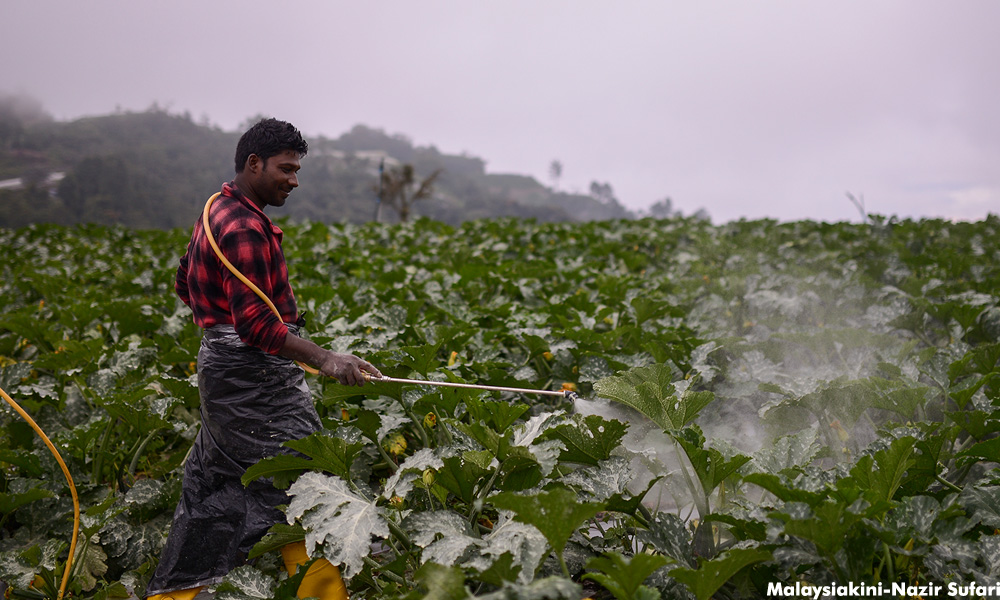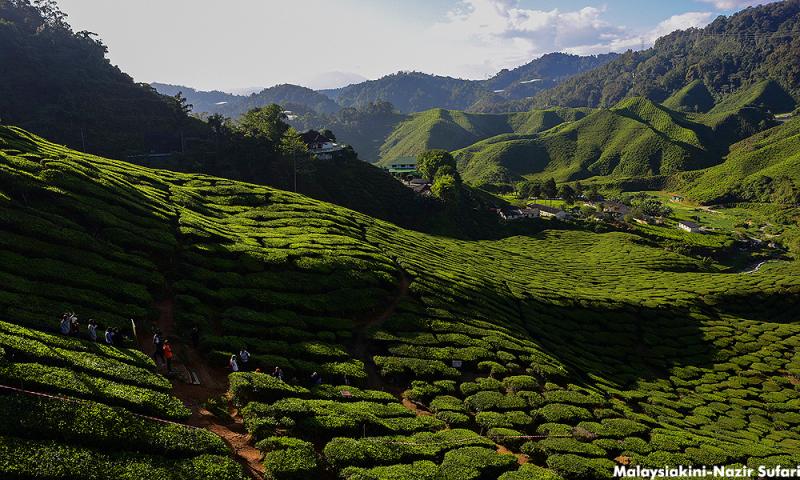Malaysia can learn from Taiwan's land reform
In most countries, agriculture is seen as a nation's backbone as it provides food and generates job opportunities, particularly in rural areas where agricultural activities are concentrated.
Although agriculture in Malaysia is still an important sector, contributing 7.29 percent to the GDP in 2017, the government for many years appeared to favour huge plantations and food business groups while sidelining small and medium farmers.
Many small or medium individual farmers in Malaysia are facing land security problems. For instance, the majority of the farmers in Cameron Highlands, well-known for its vegetable farms, only possess a Temporary Operating License (TOL) which is a form of land license that has to be renewed annually. Similar predicaments can be found in other farming areas mainly consisting of small and medium farmers.
It is not difficult to imagine that owning a license that requires annual renewal is a huge obstacle for farmers that would like to invest money and other resources into their farms because land security is not guaranteed. They are always afraid of the day when they have to be evicted by the government or when some developers become interested in taking over their land for some “well-planned” development projects.

When there is no land security, less money is spent on farms and it will be even less likely for farmers to adopt new technology that can significantly reduce the manpower needs in the agriculture sector that mainly rely on foreign workers.
Hence, this situation has created a dilemma that Malaysians have been debating for years - to reduce or not to reduce the number of foreign workers. Middle-class citizens tend to be in favour of reducing the number of workers, yet those who are involved in the agriculture sector will explain that there is a severe lack of foreign workers needed to sustain farming activities.
Without land security in place, the farming activities of small and medium farmers seem to be going nowhere and are slowly fading away.
Land reform in Taiwan
In Asia, countries such as Taiwan have successfully undergone land reform. They can bring to Malaysia useful lessons on how to develop the agriculture sector via land reform.
I was privileged to be chosen to attend the four-week 141st Regular Session on Land Policy for Sustainable Rural Development organised by the International Center for Land Policy Studies and Training in Taiwan.
One of the lessons that impressed us the most was about the successful land reform implemented in Taiwan decades ago and the subsequent benefits that have helped transform the republic to become one of the Four Asian Tigers.
The land reform was carried out under the Kuomintang (KMT) regime during the 1950s, with a set of complex historical reasons contributing to the success of the land reform.
The reforms disrupted the status quo, mainly by giving land to the lower class of the society, allowing KMT the opportunity to garner popular support while weakening the powerful and wealthy upper class that owns much land.

Additionally, both the United States and the KMT regime wanted to prevent the domino effect of communism that might infiltrate Taiwan, particularly from mainland China.
Hence, the KMT government implemented reforms with a strong political that would provide farmlands to small farmers in three important stages:
Firstly, a rent ceiling on leased farmlands was imposed in 1949 to protect the livelihood of tenants. This was followed by the government selling parcels of public land to farmers in 1951 to encourage farming activities.
Lastly, the “Land-to-the-Tiller” programme was introduced in 1953 to limit the ownership of land so that farmlands were not dominated by a small number of rich individual or companies. By compensating big landowners who owned large parcels of land, the government bought back the excess land and resold them to small farmers.
The main idea of the above-mentioned reforms is to provide land security to farmers. Many landless farmers, previous tenants and small farmers now possessed their own land or could rent secured land for farming purposes. As a result, the agriculture sector in Taiwan improved significantly and made a significant economic contribution to the republic.
Over the years, the agriculture sector in Taiwan improved the lives of the farmers living in rural areas, reducing the disparity between the rich and the poor as well as generating enough capital and becoming the strong foundation for Taiwan to move into its next development phase - industrialisation.
Today, the Asian Tiger’s agriculture sector is moving towards Agriculture 4.0 and Precision Farming that adopts artificial intelligence in farming and require almost no manpower. Unfortunately, many Malaysian small farmers are still forced to grumble about the need for financial assistance or the lack of foreign workers to work in their farms.
Is land reform in Malaysia possible?
Although Malaysia is industrialised to a certain extent, we appear to have skipped the step whereby agriculture becomes a strong and solid foundation that helps to propel the country to the next development stages.
Many small farmers are still mired in poverty and wait for the government to provide financial aid just to sustain their livelihood. Some better-off small and medium farmers are facing an increasingly uphill task to continue farming.
When land security can be guaranteed, farmers would be able to invest more resources on their farms and gradually reduce the dependence on foreign workers which is getting costlier.
Farmers can also start adopting advanced technology and sustainable farming that generally requires a larger amount of money and effort in the early implementation stages.
Land reform is by no means an automatic button to prosperity. However, providing land security to farmers through land reforms can be one of the keys to building a strong foundation for the transformation of our agriculture sector in the future.
Implementing land reform is indeed an uphill task that requires strong political will and tremendous determination to execute because such reforms will, in many cases, shatter the status quo and undermine the interests of certain groups.
The change of government in Malaysia might have created a window of opportunity to implement land reform that can effectively transform the agriculture sector for the sake of improving livelihoods in rural areas, increasing food productivity, generating more revenue for the country, as well as releasing more manpower and resources into other strategic sectors that will propel our nation greater heights.
An important question therefore arises - do our politicians have the political will to implement land reform in face of possible backlash?
RM12.50 / month
- Unlimited access to award-winning journalism
- Comment and share your opinions on all our articles
- Gift interesting stories to your friends
- Tax deductable
